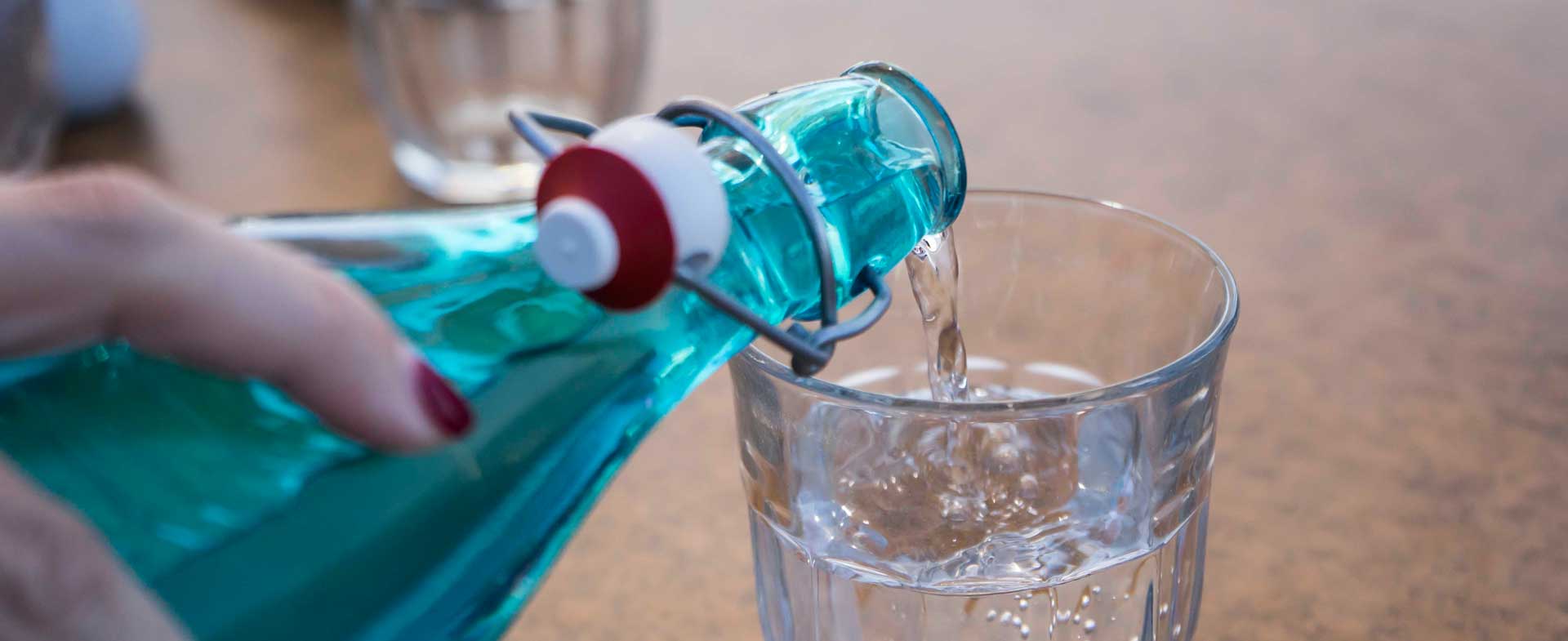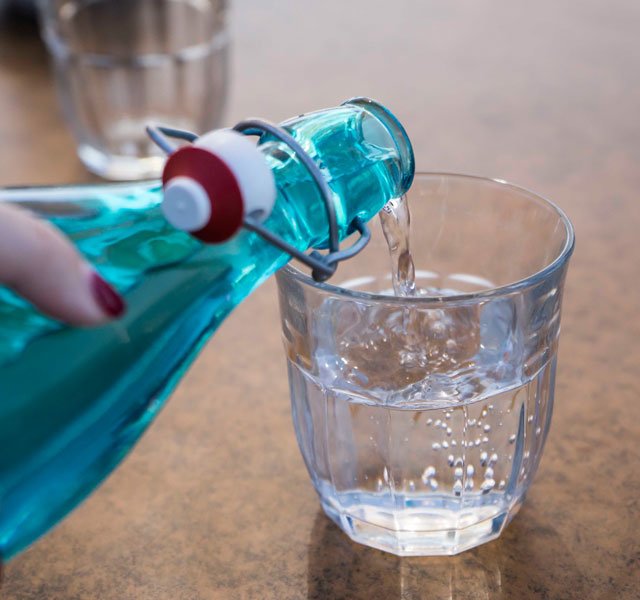We all know that drinking plenty of water each day can help your body thrive and keep illness at bay. In fact, proper hydration is necessary for nearly every bodily function. Now, though, a product dubbed alkaline water is making waves, with proponents claiming it can balance your body’s pH, boost energy and stave off disease.
Their theory: Acidic environments promote bacterial growth, so if you change your diet to be more alkaline (less acidic), you’ll keep harmful bugs away. Unfortunately, that theory doesn’t hold water, as acids are frequently used for killing bacteria.
So do these functional waters have any real health benefit? Here, registered dietitian nutritionist Kelly Nohl answers frequently asked questions about America’s latest H2O trend.
Q: What is alkaline water?
A: Alkaline refers to part of the pH scale. This scale is from 0-14, the lower numbers are more acidic while the higher numbers are more alkaline with 7 being neutral. Most alkaline waters have a pH of 8 or 9 while pure water has a neutral pH of 7. The idea is that drinking alkaline water counteracts extra acidity in the body.
Q: Does alkaline water alter the body’s natural pH level?
A: Not really. Most of the time, your blood maintains a pH of 7; it falls right in the middle of the pH scale. What you eat and drink only alters the pH of your urine. So when you drink alkaline water, you’ll change the pH of what’s in your toilet bowl, not your blood. Plus, when the alkaline water you drink hits your stomach, the acids in your gut neutralize it. So essentially, you’re paying a lot of money to drink something that won’t affect your body’s acidity.
Q: Is regular tap water alkaline?
A: Pure water has a pH of 7, so like your blood, it’s neutral. Water from the tap varies in its pH, typically ranging between 6.5-8.5. It also contains important minerals such as calcium, magnesium, potassium, bicarbonate and silica. In fact, depending where tap water is sourced, it can provide between 1 and 20 percent of your daily calcium and magnesium requirements. Hard water is more alkaline and has a higher mineral content than soft.
Q: Can drinking alkaline water help minimize acid reflux symptoms?
A: There are a few studies that suggest drinking alkaline water inactivates pepsin, the enzyme responsible for acid reflux. But these studies were done in a petri dish, not humans, so there’s really no telling how alkaline water will affect patients with acid reflux.
Q: If drinking alkaline water doesn’t make a difference, how can we alter our body’s pH?
A: The human body is a wonderful and complex machine. If there’s an imbalance in your pH level, your body will correct it, no matter what you drink. For example, if your blood becomes too acidic, you will breathe out more carbon dioxide. The kidneys are also able to excrete excess acid in your urine.
Q: Can drinking alkaline water cause problems?
A: Drinking a bottle of alkaline water every other day won’t significantly affect your body. However, if you drink a gallon of alkaline water daily, your body has to work hard to maintain its pH and that means that over time, your body will produce more gastric juices and digestive enzymes. For people who have a kidney condition or who are taking medication that alters their kidney function, the minerals in alkaline water could start to accumulate in their bodies.
If you’re concerned your diet is too acidic, follow an anti-inflammatory diet and fill your plate with fruits and vegetables. In general, animal products, caffeine, salt and sugar are acid-forming, while fruits, vegetables and whole grains are more alkaline.
To make an appointment with a registered dietitian at Henry Ford, visit henryford.com or call 1-855-434-5483.
Kelly Nohl is a registered dietitian nutritionist for the Henry Ford Center for Health Promotion and Disease Prevention.



